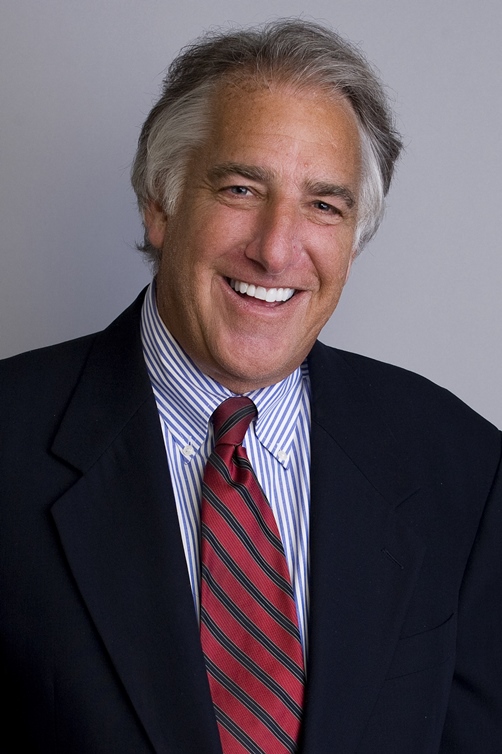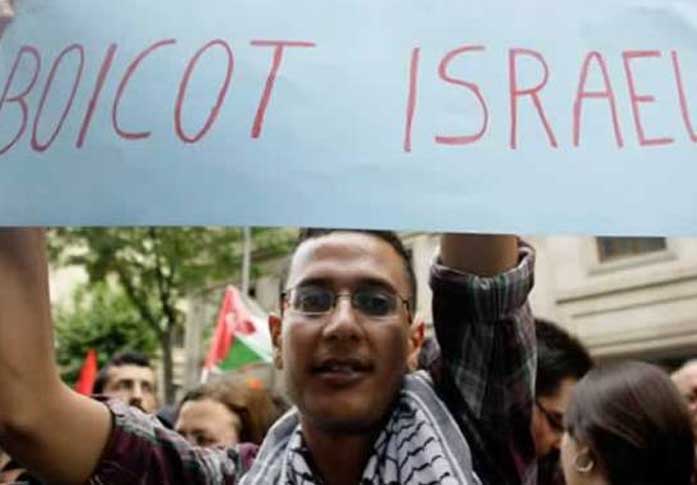As yet more evidence that academics are regularly able to engage in what George Orwell sardonically referred to as “doublethink,” “the power of holding two contradictory beliefs in one’s mind simultaneously, and accepting both of them,” this month 40 professors of Jewish studies published a denunciation of a study that named professors who have been identified as expressing “anti-Israel bias, or possibly even antisemitic rhetoric.”
While the 40 academic “heavyweights” claim they, of course, reject anti-Semitism totally as part of teaching, they were equally repelled by the tactics and possible effects of the AMCHA Initiative report, a comprehensive review of the attitudes about Israel of some 200 professors who signed an online petition during the latest Gaza incursion that called for an academic boycott against Israeli scholars.

Calling “the actions of AMCHA deplorable,” the indignant professors were insulted by the organization’s “technique of monitoring lectures, symposia and conferences,” something which, they believe, “strains the basic principle of academic freedom on which the American university is built.” That is a rather breathtaking assertion by academics; namely, that it is contrary to the core mission of higher education that ideas and instruction being publicly expressed by professors cannot be examined and judged, and that by even applying some standards of objectivity on a body of teaching by a particular professor “AMCHA’s approach closes off all but the most narrow intellectual directions.
Only in the inverted reality of academia could a group of largely Jewish professors denounce a study which had as its core purpose to alert students to professors who have demonstrated, publicly and seemingly proudly, that they harbor anti-Israel attitudes, attitudes which unfortunately frequently morph into anti-Semitic thought and speech as part of discussions about Israel and the Middle East. Since the individuals named in the report teach in the area of Middle East studies, they are also likely to bring that anti-Israel bias into the classroom with them, and students, therefore, would obviously benefit from AMCHA’s report.
Can anyone believe that had the AMCHA Initiative or other organization issued a report that revealed the existence of endemic racism, or homophobia, or sexism, or Islamophobia in university coursework, and had warned students who might be negatively impacted to steer clear of courses taught by those offending professors, that these same 40 feckless professors would have denounced such reports as potentially having a negative effect on teaching and learning? That they would question the motives of the organization that published the report? That they would deem the research and publication of such reports as being “McCarthyesque” or somehow undermining the civility of higher education by actually holding academics responsible for some of the intellectually deficient or corrupt ideologies to which they adhere and which they are more than happy to hoist on others—including, of course, their students.
Why should a professor’s political attitudes not be known to students, especially, as in this case, when those anti-Israel attitudes are extremely germane to their area of teaching, namely Middle East studies? The AMCHA researchers did not furtively investigate the private lives of the 200 professors, nor did they delve through their association memberships, reading habits, or private writings without the professors’ knowledge or consent. They were not spied upon and their courses taped by students.
The signatories were also skeptical about the guidelines used by AMCHA to gauge instances of anti-Semitism and an acceptable definition by which campus speech, teaching, publications, and events could be judged to include manifestations of anti-Semitism and not just vituperation and critique of Israel—as anti-Israel activists regularly claim. AMCHA’s “definition of antisemitism is so undiscriminating as to be meaningless,” the professors’ statement asserted, ignoring the fact that AMCHA based its own definition on earlier working definitions of anti-Semitism carefully developed by the U.S. State Department, the European Union Monitoring Centre on Racism and Xenophobia (now the Fundamental Rights Agency), and the Louis D. Brandeis Center for Human Rights Under the Law, among others.
It is not as if campuses are unaware of the prevailing sensitivities of groups who are normally considered to be protected classes—black students, gay students, Muslim students, Hispanics, among others. Just this month, in a breathtaking act of moral incoherence, Britain’s National Union of Students (NUS) voted against condemning ISIS after the Black Students Officer, Malia Bouattia, opposed the motion, not because students did not have sincere concern for Syrians and Kurds being slaughtered, but because “condemnation of ISIS appears to have become a justification for . . . blatant Islamophobia.”
None of the Jewish Studies professors seemed to be concerned with investigations of purported instances of Islamophobia on campus and elsewhere, and how exposing those occurrences might lead to a stifling of someone’s academic free speech or “chilling” of scholarly debate. In fact, FBI statistics indicate that acts of anti-Semitism occur with eight times the regularity of anti-Muslim incidents, and that between 2011 and 2012 alone, the number of anti-Semitic incidents on college campuses tripled.
So regardless of how significant the professors seem to think the problem of anti-Semitism actually is, and whether they wish to minimize the virulence of anti-Semitism because they insist on conflating it with, and making it part of, the furious academic debate about the Israeli/Palestinian conflict, the AMCHA report shows us that the “oldest hatred” is still with us, creeping noxiously up the ivy walls.
http://www.winnipegjewishreview.com/article_detail.cfm?id=4456&sec=2&title=Willful_Blindness_to_Academic_Anti-Semitism









